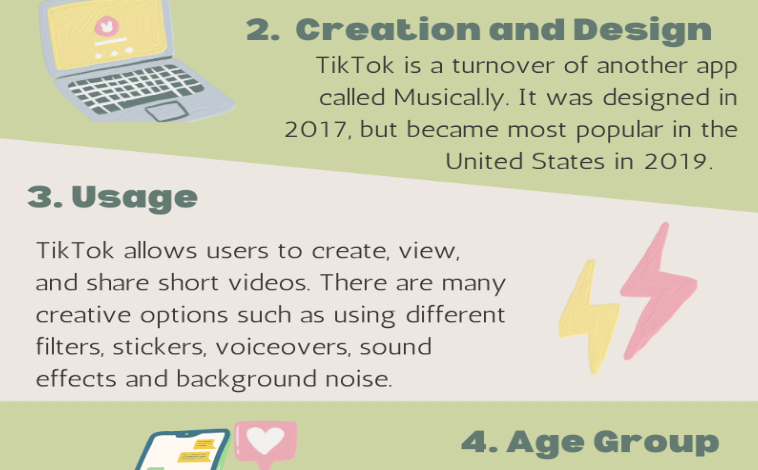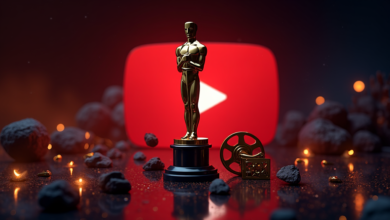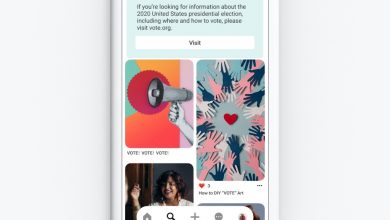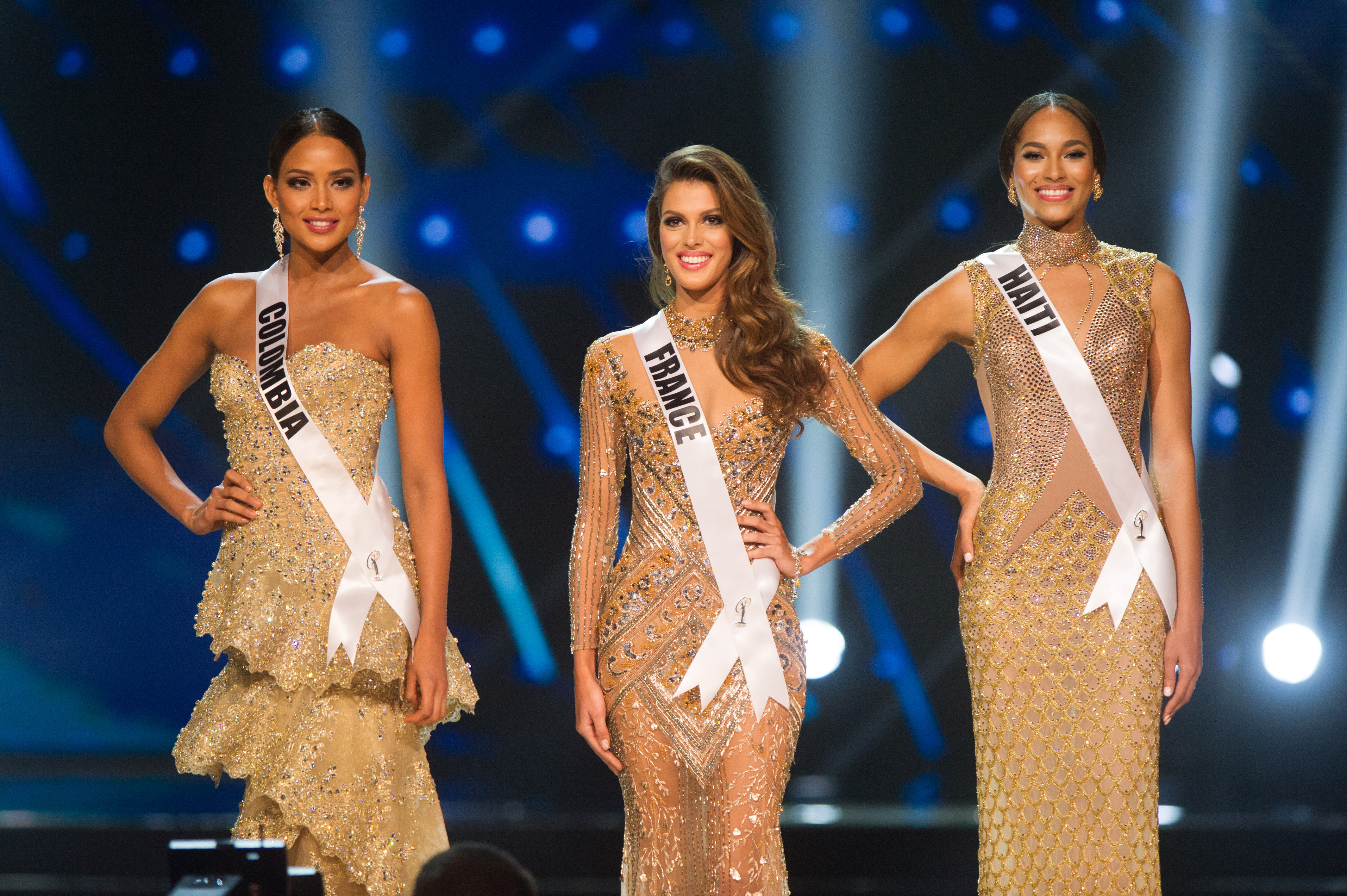TikTok Impact on Social Media: A Game Changer in 2024

The TikTok impact on social media is undeniable, as this platform has reshaped how users engage with content in the digital age. Emerging as the frontrunner in social media trends, TikTok has leveraged short-form video formats to captivate millions, creating a new ecosystem for viral content like no other. Its unique algorithm, designed to promote creativity and visibility, has empowered countless users to become influencers and showcase their talents to a vast audience. As users become more immersed in this new social media revolution, TikTok highlights a shift in user behavior, where entertainment and engagement outweigh traditional forms of media consumption. Consequently, TikTok’s influence extends beyond mere app usage, cementing its role as a cultural phenomenon in the landscape of social media.
The sway of TikTok has significantly transformed the landscape of online engagement, serving as a catalyst for new forms of content consumption. This platform has popularized the concept of brief video formats, resonating particularly with younger demographics who crave authenticity and quick entertainment. With its unique approach to content discovery, TikTok has become a breeding ground for the latest social media trends and has altered how creators and audiences interact. By removing barriers traditionally set by the entertainment industry, TikTok enables aspiring artists to reach audiences directly, making the app a pivotal player in the broader narrative of digital content. Thus, the phenomenon of short-form visual storytelling embodied by TikTok represents a fundamental shift in how we experience social media today.
The Social Media Revolution: How TikTok Changed the Game
TikTok has become a pivotal player in the social media revolution, reshaping how users engage with content and each other. Launched as a platform primarily for short-form videos, it quickly gained immense popularity, surpassing expectations and traditional media outlets. Unlike previous social media platforms that relied heavily on established influencers and celebrities to drive engagement, TikTok democratized content creation, allowing anyone with a smartphone to become a creator. This shift has not only broken down barriers to entry in the creative industry but has also fostered an environment where authentic content thrives, paving the way for new trends and movements.
The unique algorithm that powers TikTok is a cornerstone of its success, promoting a more personalized user experience by curating content based on user interactions rather than follower counts. This innovative approach has enabled countless creators, from amateur dancers to professional comedians, to reach broad audiences overnight. As a result, creators like Matt Rife have skyrocketed to fame, exemplifying how TikTok’s platform can turn ordinary individuals into viral sensations. This phenomenon has redefined the nature of stardom in the digital age, where virality is now often just a trending sound away.
TikTok’s Influence on Social Media Trends
TikTok’s influence on social media trends is undeniable, as it has set the standard for how content is consumed and created. The app’s focus on short, engaging videos has led to a new format that other platforms are now adopting. Instagram Reels and YouTube Shorts are prime examples of this trend, mimicking TikTok’s successful formula of bite-sized videos and algorithm-driven content discovery. This emulation signifies a shift in the digital landscape, where platforms must evolve or risk obsolescence. Social media companies are racing to keep up, attempting to replicate TikTok’s engaging user experience to retain their audiences.
Moreover, TikTok has inspired the emergence of various online trends, challenges, and memes that transcend the platform itself. The viral nature of TikTok content taps into contemporary culture, often leading to widespread phenomena that manifest across multiple platforms. This interconnectedness proves that TikTok is not just an app but a cultural force influencing everything from music to fashion. As a result, brands are increasingly leveraging TikTok as a marketing tool, recognizing that engaging with trends on this platform can yield significant returns on investment.
The Rise of Viral Content in the TikTok Era
The concept of viral content has taken on new meaning in the TikTok era. With its fast-paced format and algorithmic recommendations, TikTok has made it easier than ever for content to go viral. One moment, a video can be a few views, and the next it can reach millions, all within hours. The app’s combination of catchy audio clips and visually compelling short videos fosters a unique environment where trends can explode overnight, captivating a global audience. This rapid dissemination of content has created a new cultural phenomenon where sharing and remixing videos is the norm.
Such viral trends are not just entertaining but also drive significant cultural conversations, sometimes giving rise to social movements or awareness campaigns. TikTok users have effectively harnessed the power of short-form video to discuss pressing societal issues like mental health, politics, and climate change, urging peers to engage in meaningful conversations. The ability for creators to merge entertainment with advocacy illustrates a broader trend in social media—one that prioritizes impact alongside engagement.
The Addictive Nature of TikTok and its Implications
The addictive nature of TikTok has been a topic of much debate among psychologists and users alike. With its endless scroll feature and algorithmically curated feeds, many users find themselves losing track of time, spending hours on the app without realizing it. Research indicates that the average TikTok user spends approximately one hour per day on the app, which has doubled since 2019. This addictive quality is primarily due to the instant gratification provided by the rapid delivery of engaging content, keeping users glued to their screens.
While TikTok offers entertainment and a platform for self-expression, its addictive design poses a potential risk to mental well-being. The widespread addiction to quick, consumable content can impact attention spans and overall productivity. Furthermore, the pressure to continuously engage and perform on the platform can lead to anxiety and competition among creators trying to gain followers. Therefore, as TikTok continues to grow in popularity, it is crucial for users to maintain a healthy balance and be aware of their consumption habits to prevent adverse effects on their daily lives.
The Legacy of TikTok Amidst Potential Bans
As discussions about a potential TikTok ban intensify in the U.S., its legacy and impact on social media will remain profound. Even if the app were forced out of the American market, the cultural and social dynamics it has created would not easily disappear. The ripple effects of TikTok’s algorithmic success and creator-driven model have already been adopted by major platforms like Instagram and YouTube, indicating that TikTok’s influence is etched into the future of content creation and consumption. The essence of TikTok cannot simply be erased; it has redefined how users interact with digital content.
Moreover, the audience that TikTok has cultivated—a mixture of creative minds and engaged consumers—will likely persist through alternative platforms. TikTok has inspired a new wave of content creators who crave authentic connections with their audience. As these creators migrate to Instagram Reels, YouTube Shorts, or even new platforms, they will carry with them the lessons learned and the innovations sparked by TikTok, ensuring that the spirit of creativity and community remains very much alive.
Emergence of Super Apps and TikTok’s Future
As TikTok faces scrutiny and the threat of bans, the concept of ‘super apps’ emerges as a significant discussion point in the tech world. A super app combines various functionalities—social networking, messaging, e-commerce, and more—into one convenient platform. This evolution could potentially be the next big step in the digital landscape, blending the user engagement features of TikTok with other necessary services. Elon Musk’s ambitions to create a super app using X (formerly Twitter) suggest a viable model, possibly integrating aspects of TikTok’s successful engagement strategies.
In the quest for super apps, the challenge lies in maintaining user trust and ensuring that privacy concerns are adequately addressed. TikTok’s data handling practices have raised alarms, prompting users to seek platforms that prioritize their security. As competitors innovate to create more rounded experiences, they must learn from TikTok’s strengths while proactively addressing the issues that have led to its controversial status. If successful, these super apps could reshape the future of social media, building on TikTok’s pioneering work while enhancing user agency and experience.
What Lies Ahead for TikTok Creators?
With the uncertain future of TikTok in the U.S., creators are at a crossroads. The notion that the app could be banned has prompted many to consider alternative platforms for their content. However, creators possess an unprecedented level of adaptability that has allowed them to thrive even in fluctuating digital landscapes. As their audiences demand more content and engagement, creators are likely to explore various avenues. Instagram Reels and YouTube Shorts seem to be the natural progression for creators intent on maintaining visibility and interaction after TikTok.
Beyond seeking refuge on other platforms, TikTok creators may redefine their methods of engagement. Live-streaming and community-building initiatives could become more pronounced as users look to sustain connections forged on TikTok. Additionally, as new social platforms emerge that prioritize creator support and audience engagement, TikTok influencers can uniquely leverage their storytelling skills to resonate with diverse audiences across platforms, securing their influence regardless of where their content lives.
The Cultural Impact of TikTok Beyond the Digital Realm
TikTok’s cultural impact extends beyond digital interactions; it intertwines with real-world conversations and social movements. The platform has given rise to viral sounds, dances, and trends, ultimately influencing mainstream media and even fashion industries. For instance, numerous songs have catapulted into the charts thanks to TikTok challenges, showcasing the app’s power as a cultural trendsetter. Businesses and brands are keenly aware of how TikTok can transform music and fashion, making it essential for them to engage with the trends emerging from this platform.
Moreover, TikTok has fostered spaces for marginal voices that often go unheard on other platforms. Users leverage the app to share personal stories and advocate for social justice, creating a sense of community around shared experiences and struggles. Movements like Black Lives Matter have found resonance and visibility through TikTok, showcasing the platform’s potential to effect real social change. As we navigate the future of social media, understanding TikTok’s cultural significance will be crucial to grasping the evolving landscape.
The Dynamics of Content Creation in the Age of TikTok
Creating content in the age of TikTok requires more than just creativity; it demands a keen understanding of audience engagement and platform nuances. Depending on the trends that dominate TikTok at any moment, creators must adapt their style and content to resonate with viewers, constantly evolving to maintain relevance. This agility in content creation is a hallmark of successful TikTok influencers, who often rely on trend analysis and data to inform their strategies. The emphasis on relatability and authenticity has made creators prioritize connecting with their audience over traditional forms of polished content.
Additionally, the collaborative culture on TikTok allows creators to thrive by leveraging each other’s success. Duets, stitches, and collaborations create inherent visibility—similar to network effects in business—where one creator’s audience can quickly discover another’s. This interconnectedness fosters a spirit of community rarely seen in earlier social media models, where engagement was often solitary. As content creators tap into these collaborative opportunities, they shape a dynamic environment that exemplifies mutual support and creativity in the age of TikTok.
Frequently Asked Questions
What is the impact of TikTok on social media trends?
TikTok has significantly influenced social media trends by popularizing short-form video content. Its unique algorithm promotes viral content, allowing users to create and share videos that gain rapid traction, leading to a new wave of creators and consumption patterns in the digital landscape.
How has TikTok changed the way we consume viral content on social media?
TikTok revolutionized the consumption of viral content through its addictive algorithm and user-friendly interface. Unlike traditional social media platforms, TikTok allows for quick access to trending content, encouraging users to engage with a diverse range of creators and providing them with tailored video feeds that enhance user experience.
In what ways has TikTok influenced the concept of creator-fan relationships on social media?
TikTok has transformed creator-fan relationships by enabling direct interactions and fostering communities around niche interests. The platform’s design allows fans to engage with creators more personally through comments, duets, and challenges, strengthening loyalty and personal connections that were less prevalent on older platforms.
Is TikTok’s model for viral content the future of social media?
Given its remarkable success with short-form video and viral trends, TikTok’s model may represent the future of social media. Other platforms like Instagram and YouTube are adapting their strategies to incorporate similar features, indicating a shift towards more engaging, snackable content that appeals to users seeking quick entertainment.
What implications does TikTok’s success have on traditional media and entertainment?
TikTok’s rise challenges traditional media by democratizing content creation and diminishing the gatekeeping roles of Hollywood. As new talent can emerge overnight on the platform, traditional entertainment industries must adapt to this shift or face declining relevance as audiences gravitate towards more accessible, innovative formats offered by TikTok.
How does TikTok’s algorithm contribute to its social media dominance?
TikTok’s algorithm is a key driver of its social media dominance, expertly curating content based on user behavior and preferences. This personalized approach keeps users engaged for longer periods, which not only improves user retention but also boosts content virality, making it a core element of TikTok’s impact on social media.
Can TikTok’s influence be observed in other social media platforms?
Yes, TikTok’s influence is evident in the modifications made by other platforms such as Instagram and YouTube, both of which have adopted short-form video features like Reels and Shorts. These adaptations highlight how TikTok’s operational models are reshaping the broader social media landscape and encouraging a shift towards similar content strategies.
What does the term ‘super app’ mean in the context of social media evolution post-TikTok?
In the context of social media evolution post-TikTok, a ‘super app’ refers to an application that integrates multiple functionalities into one platform, allowing users to perform various tasks without switching apps. With the emergence of apps aiming to combine features from different platforms, the super app concept could represent the next evolution following TikTok’s groundbreaking impact.
| Key Aspect | Details |
|---|---|
| Background of TikTok | The app faced a potential ban in the U.S. due to national security concerns but continues to operate. |
| TikTok Leadership | TikTok CEO Shou Zi Chew announced that the app is not for sale and intends to fight against the U.S. ban. |
| Impact on Celebrities | TikTok has created next-gen celebrities like comedian Matt Rife, demonstrating the platform’s influence on entertainment. |
| Algorithm of TikTok | The app’s content discovery algorithm enhances user engagement and creator opportunities. |
| Addictiveness | The average U.S. user spends nearly one hour daily on TikTok, indicating its addictive nature. |
| Influence on Other Platforms | TikTok’s model has influenced Instagram and YouTube, reshaping how content is consumed. |
| Future Trends | Discussion about evolving into ‘super apps’ and the potential resurgence of platforms like Vine. |
Summary
TikTok’s impact on social media is profound and multifaceted, shaping how content is created and consumed. As it continues to thrive despite political challenges, the app has not only created a new breed of internet celebrities but has also revolutionized engagement strategies with its unique algorithm. While the possibility of a ban looms, TikTok’s essence will likely persist through adaptations across other platforms like Instagram and YouTube. Moving forward, as social media evolves into ‘super apps’, TikTok’s legacy could pave the way for further disruptive changes in the digital landscape.




